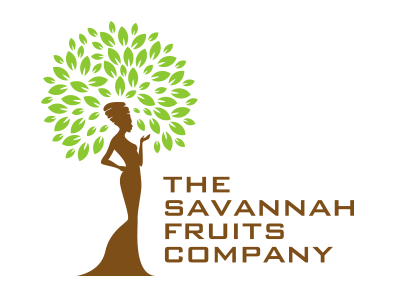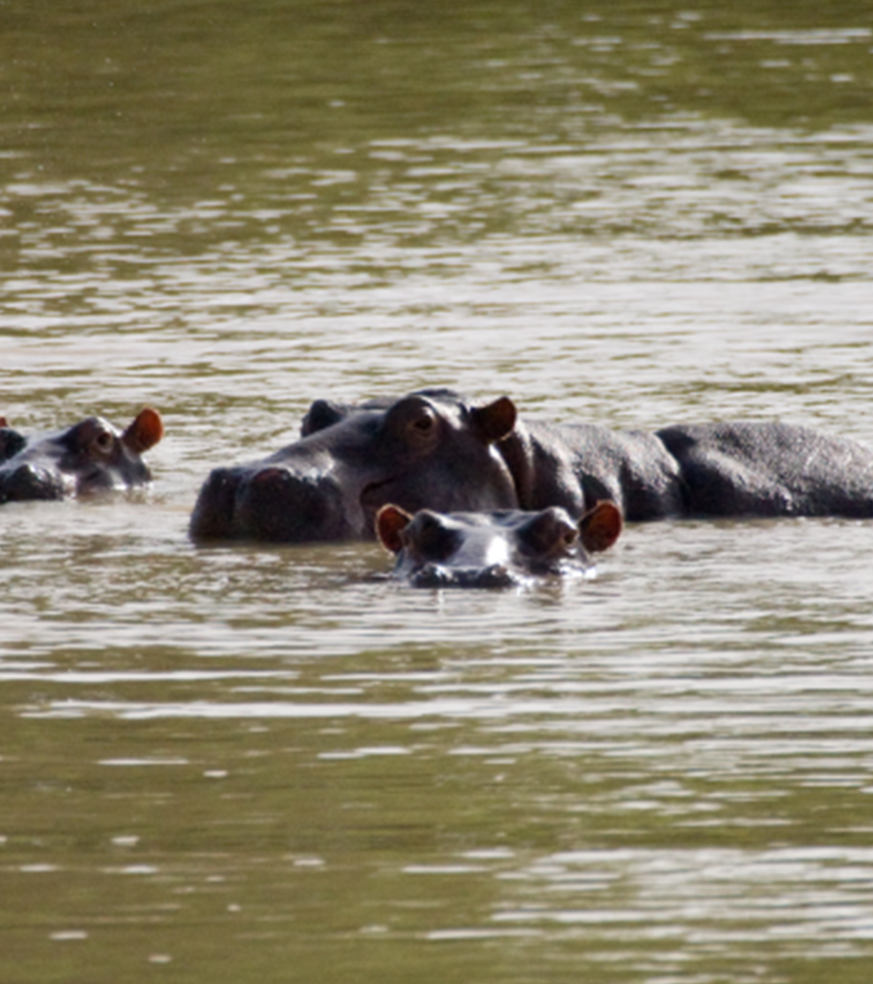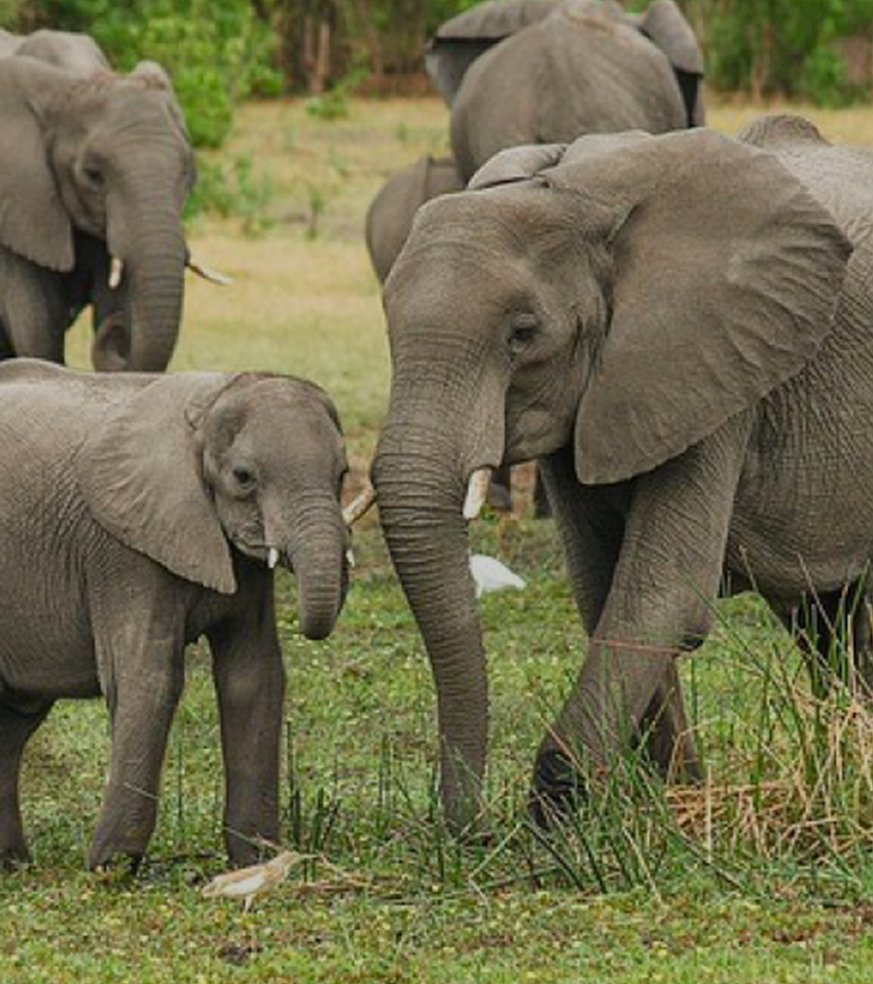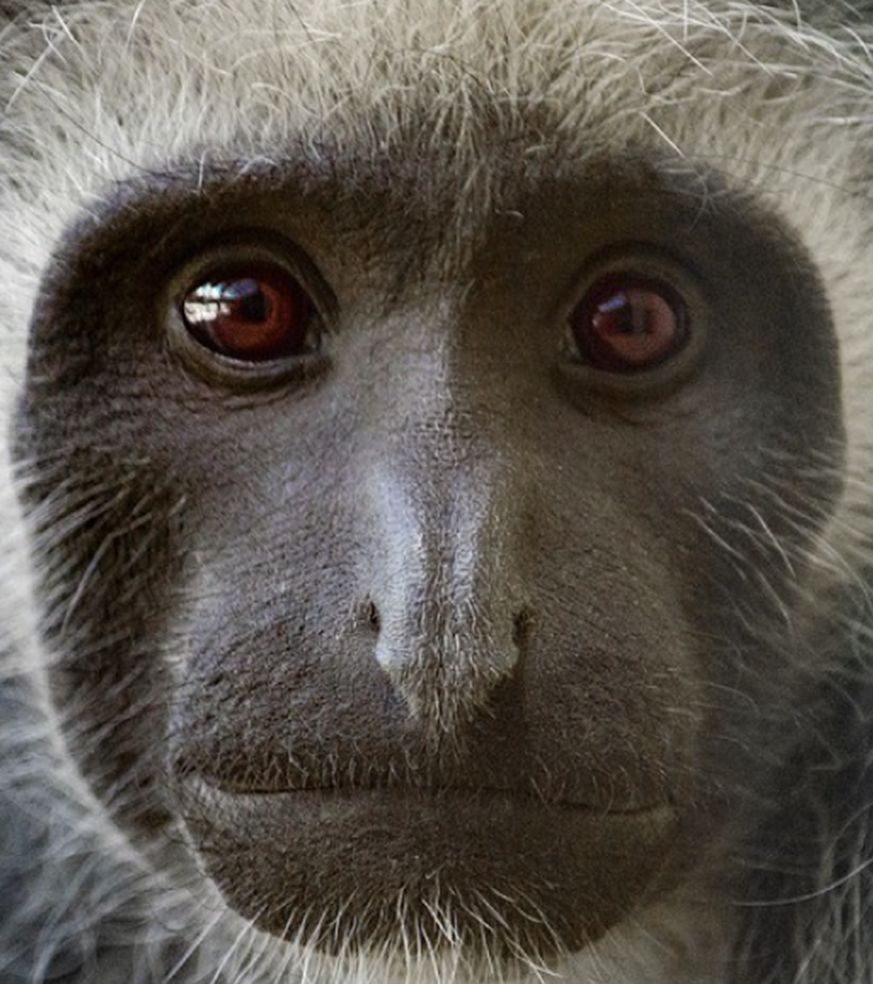BIODIVERSITY
SFC supports conservation projects across Ghana which protect
animal and plant life and promote biodiversity
WECHIAU
The Savannah Fruits Company supports protecting the natural biodiversity of the areas we source from. The role of The Savannah Fruits Company in this initiative is to help develop additional or alternative economic livelihoods for community members through the collection of organic shea nuts and processing in organic shea butter. This ensures extra income generated through the organic shea value chain. In addition, for each bag purchased a fee is paid to the Wechiau Hippo Sanctuary conservation fund to finance biodiversity protection. Since the beginning of the project the local hippo population has increase from 4 to 40.
MOLE
Mole National Park is Ghana’s largest wildlife refuge. The park is located in the Northern region of Ghana on savannah and riparian ecosystems. A recent survey estimates that the elephant population was about 436 cohabiting with 1,392 buffalos. There were about 126 warthogs, 253 water bucks, 337 kobs (small, stocky African antelopes), 82 bush bucks and 2,813 hartebeests (large African antelopes).
SFC empowers communities in the CREMA (Community Resource Management Area) with organic shea nut collection and shea butter processing. This enables communities to generate income by supporting projects to create shea butter processing centers and warehouses for shea nut collection. By SFC creating these opportunities in these remote areas, communities living around Mole won’t feel the need to poach wildlife in the park or cut down vegetation to sell for firewood. For each bag of shea nuts purchased a fee is paid by SFC to the CREMA conservation fund.
KWABRE
The forests of Kwabre in south-western Ghana (2,500 ha) and Tanoe in south-eastern Ivory Coast (12,000 ha) extend on both sides of the Tanoe River. They are home to exceptional natural habitats and biodiversity with 1,800 endemic plant species, 31 bird species, 35 mammal species and 49 amphibian species. They are also the last habitat of the Roloway monkey (Cercopithecus roloway), one of the 25 most endangered primates of the world, as well as the White-Naped Mangabey (Cercocebus lunulatus), and possibly the Miss Waldron’s Red Colobus monkey (Piliocolobus waldronae) which may already be extinct in the wild. SFC’s Organic Virgin Coconut Oil is produced in this conservation area. This acts an additional income source to the local communities living in the region. For each coconut purchased a fee is paid to the local CREMA conservation fund.
STAY IN TOUCH



